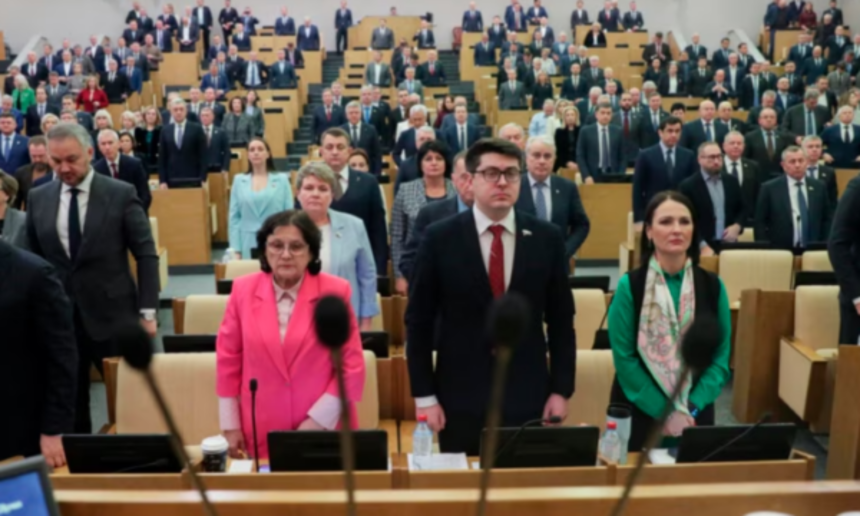Russian lawmakers approved a bill on Tuesday that broadens the definition of high treason, part of efforts by authorities to tighten control as the war in Ukraine enters its third year.
The amendments approved by the Duma, the lower house of Russia’s parliament, expand the definition of high treason to include links with any organization involved in “activities against the security of the Russian Federation.”
The existing legislation had a narrower interpretation of “defection,” which was defined as joining the enemy’s armed forces.
Those convicted of high treason can face life imprisonment.
“In a situation where our soldiers risk their lives in the battle for Russia’s sovereignty, there are no ‘neutral’ or ‘peaceful’ organizations on the enemy’s side,” said Vasily Piskarev, head of the Duma’s security committee and one of the bill’s authors. “We cannot allow anyone to work for the enemy on our territory.”
Human rights activists have warned that the bill’s vague wording could be used to target anyone with ties to any Ukrainian organization, and may be broadly interpreted to punish those who have connections with Western organizations or companies.
The legal definition of treason has already been expanded to include “assistance,” defined vaguely, to foreign countries or organizations.
The proposed amendments, which still need to be approved by the upper house of parliament and signed by President Vladimir Putin to become law, also stipulate up to 15 years in prison for foreigners and stateless persons accused of “assisting enemy activities against the security of the Russian Federation.”
Treason and espionage charges have dramatically increased since President Putin sent military forces to Ukraine in February 2022. Such cases have been raised against a wide range of suspects, from Kremlin critics to independent journalists and scientists, drawing attention from human rights groups.







